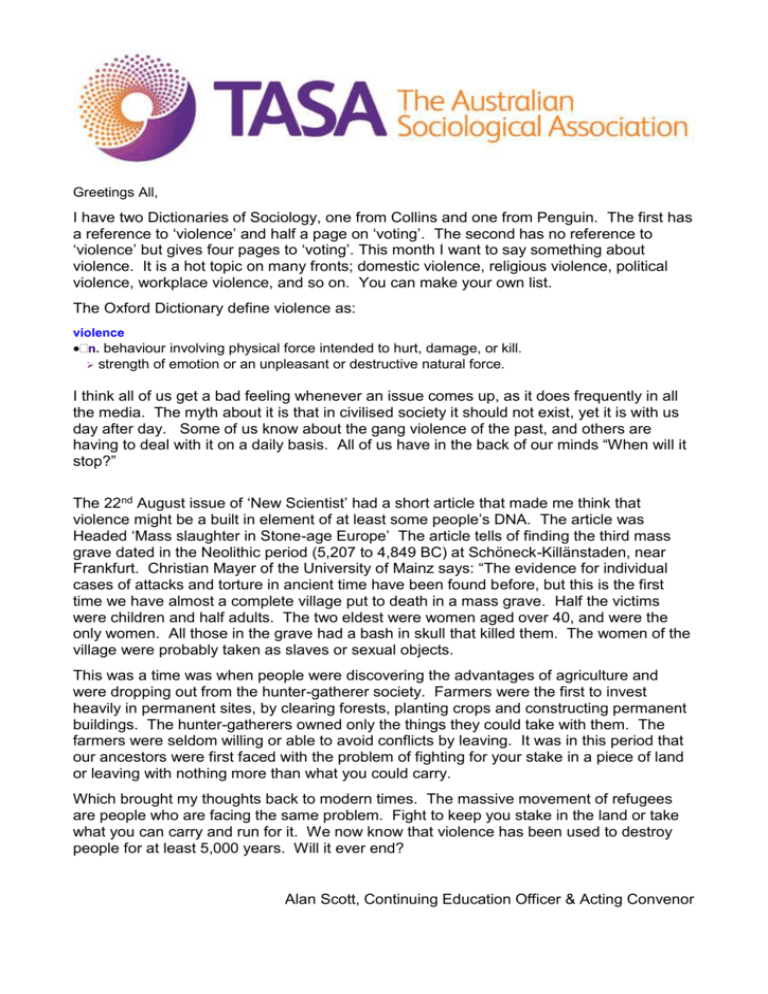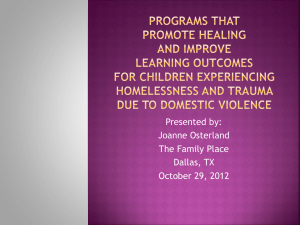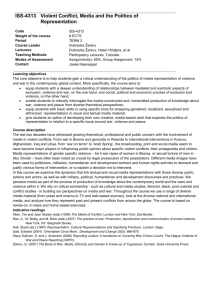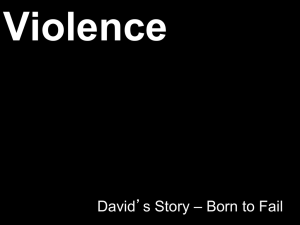Word - TASA
advertisement

Greetings All, I have two Dictionaries of Sociology, one from Collins and one from Penguin. The first has a reference to ‘violence’ and half a page on ‘voting’. The second has no reference to ‘violence’ but gives four pages to ‘voting’. This month I want to say something about violence. It is a hot topic on many fronts; domestic violence, religious violence, political violence, workplace violence, and so on. You can make your own list. The Oxford Dictionary define violence as: violence n. behaviour involving physical force intended to hurt, damage, or kill. strength of emotion or an unpleasant or destructive natural force. I think all of us get a bad feeling whenever an issue comes up, as it does frequently in all the media. The myth about it is that in civilised society it should not exist, yet it is with us day after day. Some of us know about the gang violence of the past, and others are having to deal with it on a daily basis. All of us have in the back of our minds “When will it stop?” The 22nd August issue of ‘New Scientist’ had a short article that made me think that violence might be a built in element of at least some people’s DNA. The article was Headed ‘Mass slaughter in Stone-age Europe’ The article tells of finding the third mass grave dated in the Neolithic period (5,207 to 4,849 BC) at Schöneck-Killänstaden, near Frankfurt. Christian Mayer of the University of Mainz says: “The evidence for individual cases of attacks and torture in ancient time have been found before, but this is the first time we have almost a complete village put to death in a mass grave. Half the victims were children and half adults. The two eldest were women aged over 40, and were the only women. All those in the grave had a bash in skull that killed them. The women of the village were probably taken as slaves or sexual objects. This was a time was when people were discovering the advantages of agriculture and were dropping out from the hunter-gatherer society. Farmers were the first to invest heavily in permanent sites, by clearing forests, planting crops and constructing permanent buildings. The hunter-gatherers owned only the things they could take with them. The farmers were seldom willing or able to avoid conflicts by leaving. It was in this period that our ancestors were first faced with the problem of fighting for your stake in a piece of land or leaving with nothing more than what you could carry. Which brought my thoughts back to modern times. The massive movement of refugees are people who are facing the same problem. Fight to keep you stake in the land or take what you can carry and run for it. We now know that violence has been used to destroy people for at least 5,000 years. Will it ever end? Alan Scott, Continuing Education Officer & Acting Convenor









